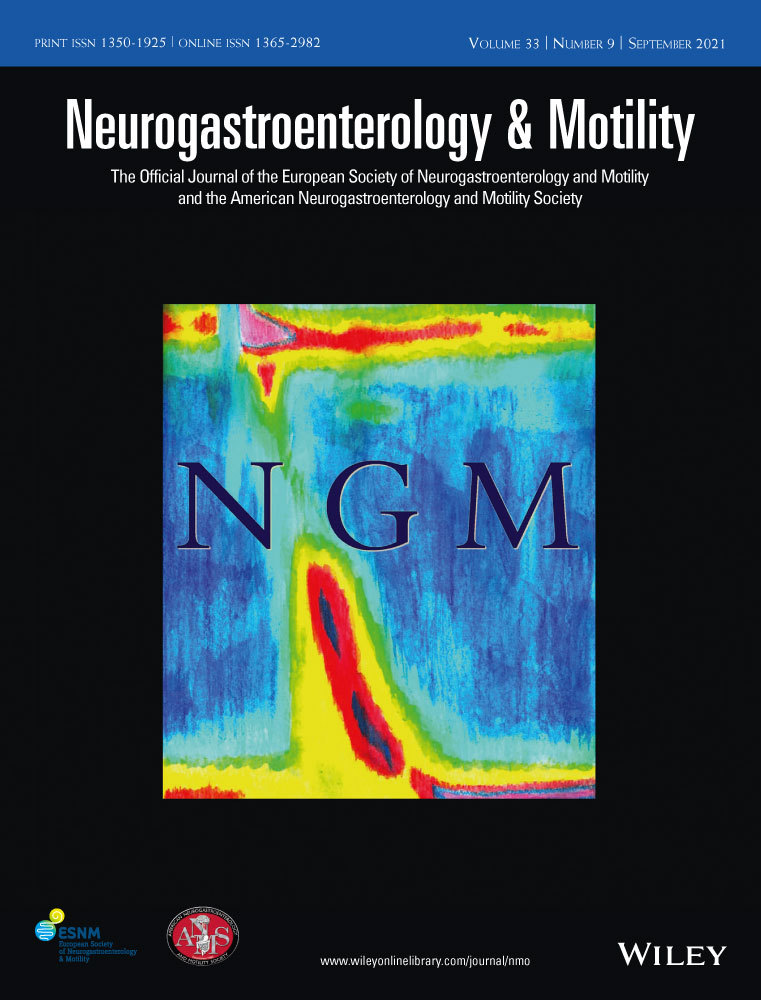Low FODMAPs diet or usual dietary advice for the treatment of refractory gastroesophageal reflux disease: An open-labeled randomized trial
Funding information
This study received financial support from the Research Support Fund of the Société Nationale Française de Gastro-Entérologie
Abstract
Background
The low FODMAPs (fermentable oligo-, di-, monosaccharides, and polyols) diet improves lower gastrointestinal symptoms. Patients suffering from proton pump inhibitor (PPI) refractory gastroesophageal reflux disease (GERD) have limited treatment options. We investigated the efficacy of a low FODMAPs diet in patients with PPI refractory GERD.
Methods
This multicenter, randomized, open-label study compared the efficacy of a 4-week low FODMAPs diet and usual dietary advice (ie, low-fat diet and head of bed elevation) in patients with symptomatic PPI refractory GERD, defined by a Reflux Disease Questionnaire (RDQ) score >3 and abnormal pH-impedance monitoring on PPIs. The primary endpoint was the percentage of responders (RDQ ≤3) at the end of the diet.
Results
Thirty-one patients (55% women, median age 45 years) were included, 16 randomized in the low FODMAPs diet group and 15 in the usual dietary advice group. Adherence to the assigned diet was good, with a significant difference in the FODMAPs intake per day between the low FODMAPs diet (2.5 g) and the usual dietary advice group (13 g) (p < 0.001). There was no difference in response rates (RDQ score ≤3) between the low FODMAPs diet (6/16, 37.5%) and usual dietary advice (3/15, 20%) groups (p = 0.43). Total RDQ score and dyspepsia subscore decreased significantly over time in both groups (p = 0.002), with no difference according to the assigned diet group (p = 0.85).
Conclusion
Low FODMAPs diet and usual dietary advice have similar but limited beneficial effects on symptoms in patients with PPI refractory GERD.
CONFLICT OF INTEREST
PR consultancy fees from AbbVie, Amgen, and Janssen. CM consultant/speaker for MSD, Kyowa Kirin, Norgine, Biocodex, Mayoly Spindler, Tillots, and Ipsen. SR received research grants from Diversatek Healthcare and Medtronic and was a consultant for Reckitt Benckiser. SB consultant/speaker for MSD, IPSEN, Alfasigma, Abbott, Biocodex, and Mayoli. FM consultant/speaker for Laborie, MSD, Mayoly Spindler, Alfasigma, and Schwa Medico. GG consultant for Allergan, Takeda, Biocodex, Kyowa Kirin, and Sanofi and speaker for Mayoly Spindler, Biocodex, Kyowa Kirin, and Laborie. SS Medtronic. FZ consultant/speaker for Takeda, Allergan, Biocodex, Vifor Pharma, Mayoly Spindler, Ipsen, Abbott, Reckitt Benckiser, and Alfasigma. BV and ER none.




